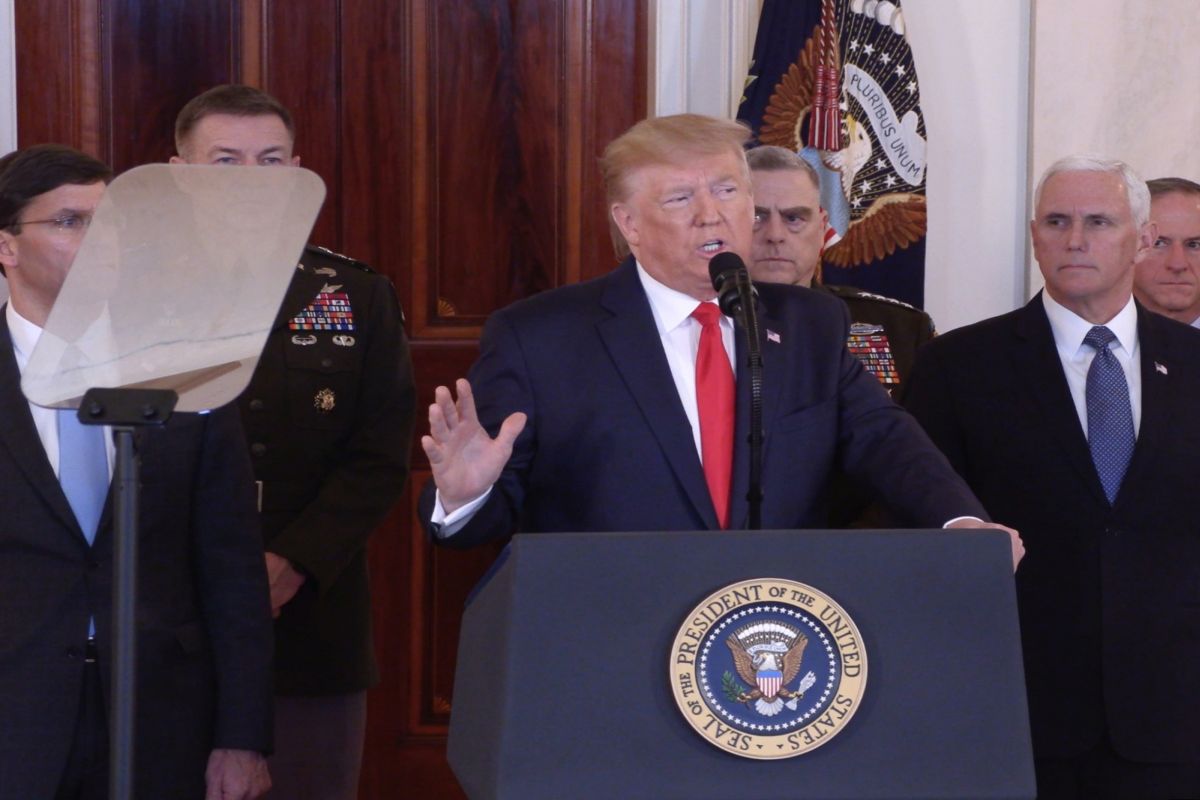US President Donald Trump’s impeachment acquittal has delivered the White House a fresh coat of power, sparking worries over the rise of an “imperial presidency.”
His victory in the Senate trial on Wednesday accelerated a decades-long shift in the US government in which Congress has steadily ceded authority to the Oval Office. The presidency hit a low in the 1970s after Congress wrested authority away following Richard Nixon’s Watergate abuses.
Since then, each successive US leader has sought to further dominate the legislature.
Trump, though, has sparked anxiety: he flaunts his power and has an attorney general who favours a strong presidency and a Republican Party unwilling to restrain him.
The acquittal verdict was the final act of a four-month impeachment process that inflamed the partisan tensions simmering throughout the course of the Trump administration, the friction that boiled over during the State of the Union even though Trump left impeachment out of his speech.
Lawmakers held the upper hand mostly through the early 20th century, until, faced by existential emergencies — the Great Depression and then World war II — president Franklin Roosevelt rode roughshod over Congress to take action.
Since then, “we have seen a steady increase over time in the independent powers of the presidency,” said Mark Rozell, dean of the Schar School of Policy and Government at George Mason University.
Earlier on Wednesday, Democratic House Speaker Nancy Pelosi denounced the Senate’s acquittal of President Donald Trump on Wednesday, saying he remains “an ongoing threat to American democracy.”
Ukraine’s former president had said that he discussed investments with President Donald Trump’s attorney, Rudy Giuliani, in 2017, but that he never discussed Ukrainian companies with any US official.
On December 18, President Trump was formally impeached in a historic vote in the House of Representatives.
Adam Schiff, who led the House investigation, said the fact that it came after Mueller’s investigation showed that Trump’s 2016 campaign had actively sought help from Russia forced Democrats to act.
Earlier on Thursday, Trump attended the National Prayer Breakfast, where he attacked his political rivals and claimed that they had inappropriately invoked “their faith as justification” for their decisions to vote to remove him from office.
It appeared that Trump was referring to Pelosi and Romney, who both have said that their faith guided them to the decision on why Trump needed to be impeached.
Nearly two decades later, Congress worries that Trump could use the same powers to go to war with Iran. But the lawmakers are too at odds to do anything about it.
Barack Obama entered the White House in 2009 pledging not to abuse his powers like Bush and to respect Congress’s equal authority.
New York University law professor Richard Pildes said that who wins the November 2020 election — Trump and his Republicans or the Democrats — will be indicative.
“How these events become absorbed politically in the next election will significantly shape what future presidents and members of Congress come to think about the exercise of their powers,” Pildes said.
(With inputs from agency)










